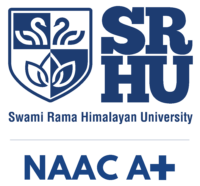Policy for the Management of Aquatic Food Resources
November 6, 2025 2025-11-15 6:21Policy for the Management of Aquatic Food Resources
Policy for the Management of Aquatic Food Resources
| Approved | Board of Management on 12th January 2019 |
| Notification | Notified by Registrar vide notification No. SRHU/Reg/OO/2019-04 (i) dated 15th January 2019 |
| Reviewed / Revised | Board of Management on 29th March 2022 |
| Notification | Notified by Registrar vide notification No. SRHU/Reg/OO/2022-58 (i) dated 5th April 2022 |
| Next Review | 2025–26 |
- Short Title & Commencement
- This Policy shall be called the “Policy for the Management of Aquatic Food Resources” of Swami Rama Himalayan University.
- This Policy shall be deemed to have come into force from the date of approval of the Board of Management of the University.
- Purpose
- This policy promotes the sustainable use and sourcing of food from aquatic ecosystems, including fish, shellfish, and other marine and freshwater resources. Its goal is to ensure that aquatic food sourcing supports biodiversity, maintains ecosystem health, and contributes to long-term food security.
- Scope
- All seafood and aquatic food products purchased, served, and processed.
- All suppliers, contractors, and partners involved in the harvesting, processing, or distribution of aquatic foods.
- Activities related to aquaculture and wild-capture fisheries.
- Goals
- Source aquatic food only from sustainable and legal fisheries or aquaculture operations.
- Avoid species that are endangered, overexploited, or caught/produced through destructive practices.
- Promote traceability and transparency throughout the supply chain.
- Support local and small-scale fisheries that follow responsible practices.
- Educate staff and suppliers about sustainable aquatic food sourcing.
- Implementation Measures
- Responsible Sourcing
- Prioritize products certified by credible sustainability standards (e.g., MSC – Marine Stewardship Council, ASC – Aquaculture Stewardship Council, Friend of the Sea, or equivalent).
- Avoid sourcing from fisheries identified as illegal, unreported, or unregulated (IUU).
- Exclude species listed as threatened or endangered under the IUCN Red List or national protection frameworks.
- Promote use of underutilized, abundant, or locally available aquatic species to reduce pressure on overfished stocks.
- Supplier Requirements
- Require suppliers to demonstrate compliance with sustainable fishing or aquaculture practices.
- Include sustainability criteria in procurement contracts.
- Encourage suppliers to implement waste minimization, efficient energy use, and responsible feed sourcing in aquaculture.
- Conduct periodic audits or request documentation verifying the legality and sustainability of sourced products.
- Internal Practices
- Provide staff training on sustainable seafood procurement and handling.
- Offer sustainably sourced seafood options in food services or catering operations.
- Promote awareness campaigns among consumers and stakeholders on the importance of protecting aquatic ecosystems.
- Responsible Sourcing
- Monitoring and Reporting
- Maintain records of all seafood purchases, including species, source, and certification status.
- Conduct annual reviews to assess progress toward sustainable sourcing goals.
- Report on sustainability performance in the organization’s ESG or sustainability disclosures.
- This policy shall be reviewed every three years or earlier if required to accommodate new educational practices, regulatory requirements, or emerging student needs.
- The University reserves the right to interpret, alter, amend, modify, cancel or withdraw any or all provision mentioned herein above in this policy without any notice.
- In case of any dispute, the decision of the Vice Chancellor of the University shall be final and binding.

